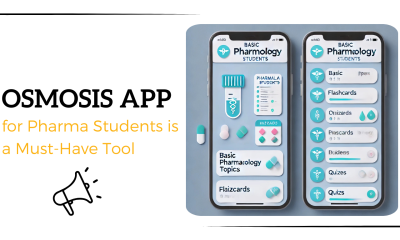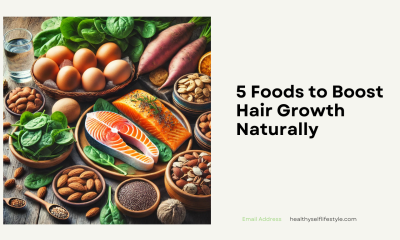Lifestyle
6 Effective Home Remedies for Hair Treatment

6 Effective Home Remedies for Hair Treatment
Achieving strong, shiny hair doesn’t necessarily require costly salon treatments. With the right home remedies for hair treatment, you can nourish your hair naturally, using ingredients that are often already available at home. These remedies are loaded with essential nutrients to address common hair concerns like dryness, breakage, dullness, and split ends.
Here’s a list of six tried-and-true home remedies for hair treatment that will help you achieve healthy, beautiful hair.
-
Coconut Oil and Honey Mask
Honey functions as a natural humectant, retaining moisture, while coconut oil, which is abundant in fatty acids and proteins, helps to deeply condition and strengthen hair. For dry, damaged hair that needs to be hydrated and repaired, this mask is ideal.
How to Apply: Mix thoroughly after adding one tablespoon of honey and two teaspoons of coconut oil. Concentrating on the lengths of your hair, apply the mixture from the roots to the ends. After leaving it on for around half an hour, thoroughly rinse with a mild shampoo. For optimal effects, this treatment can be performed once a week.
-
Egg and Olive Oil Treatment
Olive oil is incredibly nourishing and hydrating, while eggs are a potent source of protein that helps to thicken hair strands. For weak, brittle hair that breaks easily, this treatment is perfect.
How to Apply: Add two tablespoons of olive oil and whisk one egg until creamy. After properly distributing the mixture throughout your hair, put a shower cap on it and let it sit for 20 to 30 minutes. Rinse with shampoo and lukewarm water (to avoid the egg boiling in your hair). To see benefits, use this mask once a week.
-
Avocado and Banana Hair Mask
Bananas and avocados are both high in vitamins and minerals that are vital for healthy hair. Bananas supply moisture and potassium, whereas avocados are rich in fatty acids. When combined, they provide a fantastic at-home hair treatment that hydrates and nourishes your hair, leaving it feeling silky and lustrous.
How to Apply: One ripe banana and half an avocado should be mashed until smooth. Concentrating on the ends of your hair, apply the mixture. Rinse and shampoo after 20 to 30 minutes after leaving it on. Dry, frizzy hair benefits greatly from this mask.
-
Aloe Vera and Yogurt Scalp Soother
Aloe vera’s inherent calming qualities make it the perfect remedy for a dry, itchy scalp. It aids in scalp cleansing and buildup removal when combined with yogurt, which contains natural enzymes and acids.
How to Apply: Combine one tablespoon of yogurt and two teaspoons of aloe vera gel. Apply the mixture to your scalp and gently massage it in. After 20 minutes of sitting, rinse with lukewarm water. You can use this treatment every two weeks to maintain a balanced and healthy scalp.
-
Apple Cider Vinegar Rinse
It is often known that apple cider vinegar (ACV) is an excellent scalp cleanser that helps restore the natural pH balance, gets rid of buildup, and makes hair shine. This easy at-home hair treatment works well to improve the general health of the scalp and lessen dandruff.
How to Apply: Combine two parts water and one part ACV. After shampooing, gently massage the mixture into your hair and scalp. Rinse it with cool water after a few minutes. For best results, use this rinse once a week.
-
Green Tea Infusion for Hair Strengthening
Antioxidants included in green tea help strengthen hair from the ground up and encourage hair growth. It’s a simple, all-natural method to strengthen and revive your hair.
How to Apply: After making a potent cup of green tea, allow it to cool. Use the tea as a last rinse on your hair and scalp after shampooing. Rinse with water after massaging it in and letting it sit for approximately five minutes. You can have this therapy twice a week.
When it comes to hair care, natural substances can do wonders, providing efficient solutions without the possible risks of chemicals. Stronger, healthier hair that is resilient, glossy, and vibrant can be yours by consistently implementing these six *home remedies for hair treatment* into your regimen. These natural and reasonably priced hair treatments can change your hair with a little perseverance and consistency.
Personal Development
5 Effective Tips to Overcome Being Overwhelmed at Work

5 Effective Tips to Overcome Being Overwhelmed at Work
Being overwhelmed in workplace is a frequent issue in current society where people deal with their occupations. From short time frames to having to do multiple things concurrently, or having to meet those expectations, the pressure begins to mount. That said, there are strategies that will can be adopted to recuperate from work related anxiety.
It is time now to explore five practical steps to avoid being overwhelmed at the workplace:
1. Prioritize Your Tasks
The most common cause of stress at workplace is multitasking, or better yet, taking on more than one can handle at a time. First thing you have to do in the morning, is to write all that you have to do on a piece of paper and divide them into A, B and C priorities. First, complete the important things, and omit or postpone the less important ones. By scheduling, you make certain that you end up focusing most of your efforts on achieving the important tasks, thus making you realize you have not so much pressure as you thought.
2. Learn to Say No
If you get too involved or do too much, the leading reason is that it leads to feeling overwhelmed. Even if we try to be as supportive as we can be, when we develop habits that involve over-committing ourselves can let our energy levels dwindle and our productivity suffer. Start slowly practicing the art of saying no, to any activity that is not towards achieving your goal or one that you can not handle. Saying no to offers to take on more work is essential because it let’s you concentrate on what you are currently doing thus doing it to the best of your abilities.
3. Take Short Breaks
When that is the case, the mind and the body get tired and one feels drained up to the point of recklessness. It is important to factor short breaks into ones working schedule in order to revived themselves. It is important to have a 5–10 minutes break after every full hour of work, to minimize the extent of overworking and feeling overwhelmed. Get up from your computer, stand, walk, or even practice deep breathing for a few minutes.
4.Organize Your Workspace
Clutter is one of the leading causes of stress, therefore, maintaining effective and efficient working space could greatly help with lowering stress tiers. Disorder is the main cause of stress and when there is clutter, stress is bound to increase. Spend at least 5-10 minutes daily to declutter your work space, organize your papers and keep your tools properly. Clutter makes the environment stressful and makes it hard for you to gain control over your work to avoid work overload.
5. Practice Self-Compassion
Because of this, it’s particularly important to be careful with self-criticism when you find yourself overwhelmed at the workplace. But self-compassion is fully necessary for mental health to be in a good state. Tell yourself it is okay to set boundaries as much as possible; you are pushing as much as you can. There is always a need to correct mistakes made as a team and not nurse them, or dwell on them. Confuse yourself on a regular basis by offering yourself rewards after accomplishing something as simple as finishing a task.
Bonus Tip: Seek Support
In case the signs go on signaling feeling overwhelmed, one should not hesitate to find help. Disclose your working pressures and difficulties to a close up, manager, or counselor. At other times, all that is needed is a new pair of eyes to either come up with new ideas or ease a workload.
When you feel overwhelmed at work you may not have to let this take over your life. Therefore to overcome work stress, individuals must prioritise work, set limits, take breaks, organize themselves and be kind to themselves. As with most things, the little things matter, and they can help make big differences. These tips must be practiced today, certainly, you will experience a change in your productivity and mental health.
Lifestyle
Self Development Importance: Why It Matters

Self Development Importance: Why It Matters
Life using the path of self-development is highly crucial in the dynamic environment. Self-growth is the ongoing practice of improving oneself to reach personal and professional growth in terms of skills, knowledge, and emotional well-being. It’s a process that results in improved self-awareness, wiser choices and more purposeful action. So, let us look at the reasons as to why self-development is important.
Unlocking Your True Potential
Self-development is a very powerful tool that can help you reach your potential. Most of us do not get to know our hidden talents or the things we can do. By making an effort to improve oneself intentionally, participants can access these untapped reservoirs by learning new skills, stepping into discomfort and seeking feedback. Self-development is crucial because it can change your life from just a regular life to an outstanding one.
Building Emotional Resilience
From only having solace and joy through friends, there are still those with emotional resilience have the presence of mind to separate the up and down swings of life. Employing self-development allows people to cope with stress, learn from failure, and forge ahead with great optimism. Practices such as mindfulness, emotional intelligence, solidarity, and constructive self-judgment give you the fortitude to confront life’s challenges with elegance. Abiding by this, such integrity is a key element in attaining rapid growth and emphasizes the significance of self-development, to ensure a sound mental health.
Enhancing Career Prospects
Personal development is a major difference-maker in the competitive world of today. Investing in your development is important, as it signals to employers that you are proactive and adaptable. Self-development is not just required for professional success, but it also comes as soft skills with courses and workshops, which help in enhancing skills for a symbol of professional excellence. Enhancing your value in the market, while also giving you the confidence to excel in your field.
Strengthening Relationships
The factors that enable productive relationships, at work and at home include understanding, empathy, and communication. Self-development is important to get more of this quality. Improving your interpersonal skills and emotional intelligence will help you build more profound relationships with those around you.” Clearly, self-development has a role to play here, and relationships that are more harmonious and meaningful improve your life.
Cultivating a Growth Mindset
A growth mindset is the understanding that abilities and intelligence can be developed and enhanced through effort and persistence. And, so the mindset of self-development nurture within yourself the ability to face challenges, take risks, and learn from failures. His ability to turn setbacks into growth opportunities reminds us that self-development is one of the keys to lifelong learning and, ultimately, success in life.
Self-development is a task that is subtly related to, all aspects of life. It enables individuals to achieve new heights, adapt to challenges, develop emotional resilience, improve career opportunities, nurture relationships, and most importantly, embrace a growth mindset. Not only are you enriching your own journey through this, but you also become an example to those around you of what a path of growth might look like. Keep in mind, personal growth is not an event: it is a journey that cannot end, but gives you tools to help you live your life clearer and closer to your purpose. Begin now, and allow it to become a part of who you are.
Food Guides
Best Food for Heart Care

Best Food for Heart Care
Immune Booster: All You Need to Know About the Heart-Healthy FoodYour heart performs at its best so that you can live, thus it should be taken well care of, which you can provide as your best! Maintaining healthy nutrition is one of the most effective yet simplest way to take care of your heart. The best food for heart care can lower your chances of developing cardiovascular diseases and boost health.
Here Is A Guide To A Few Heart-Friendly Foods And Tips To Keep Your Heart In Check.
Include Omega-3 Fatty Acids
Essential to heart health, they reduce inflammation, lower blood pressure, and reduce the risk of arrhythmias (irregular heartbeats). Omega-3s are abundant in fatty fish like salmon, mackerel, and sardines. Walnuts, flaxseeds, and chia seeds are also some of the best plant-only sources if you’re vegetarian or vegan. These are essential foods in any cardiac diet.
Incorporate these into your meals at least twice a week for cardiovascular benefits. These omega-rich foods can touch up things even when grilled, baked, or tossed within salads.
Embrace Whole Grains
Whole grains contain a ton of fiber, which helps keep cholesterol in check and blood pressure where it needs to be. Choose complex carbs: Brown rice, oatmeal, quinoa, and whole wheat bread These nutrient-rich substitutes — whole grains, including oatmeal, coarse breads, and whole-wheat pasta — should be substituted for refined grains, such as white bread and pastries, to correspond to a heart-healthy diet.
Whole grains give you energy slowly and are an important part of a heart-care diet by helping to keep the arteries clear so blood can flow smoothly.
Eat the Rainbow: Colorful Fruits and Vegetables
It all starts with a balanced, whole-foods diet, which consists of fresh fruits, and vegetables High in antioxidants, vitamins (especially K, C, and folate), and minerals (especially potassium), all of which are necessary for heart health. For example, leafy greens, including spinach and kale, are high in nitrates that can reduce blood pressure levels. Rich in beneficial psyllium: Anthocyanins in blueberries and strawberries (berries in particular) reduce oxidative stress and inflammation
This is the reason a colorful plate makes sure you get nutrients that are at the basis of the food for board that concern. Consuming more than five servings of fruits and vegetables every day is best for your heart.
Add Healthy Fats
Some fats are heart-healthy! Healthy fats, like the ones in avocados or olive oil or nuts, reduce bad cholesterol (LDL) and raise good cholesterol (HDL). These fats also play a vital role in the prevention of plaque formation on your arteries.
Substituting olive oil for butter when cooking, or grabbing a handful of almonds instead of chips for a snack are two easy ways to work these heart-savvy fats into your diet. These are the bedrock of food for heart care.
Limit Sugar and Sodium Intake
Too much sugar and sodium put a lot of burden on your heart, raising blood stress and weight. Say no to sweets, junk food and fast food. Choose natural sweeteners such as honey or stevia, and season your dishes with herbs and spices instead of salt.
That can help even more to make your diet heart healthy so you become really conscious about your sugar and sodium intake.
The health of your heart is highly affected by what you eat. Emphasizing Whole foods such as Fatty fish, whole grains, colorful fruits and vegetables, and healthy fats can improve heart health. Lowering sugar and sodium also contributes to cardiovascular wellness.
Following the right food for heart care not only favors your heart but also the general health. Just remember, small modifications to your consuming habits today can give you a wholesome, happier heart the following day. Helps you kick-off on the road to good heart health today!
-

 Healthy Habits2 months ago
Healthy Habits2 months ago5 Morning Routines for Maximum Energy
-

 Sustainable Living2 months ago
Sustainable Living2 months agoImportance of Self-Love in Mental Health
-

 Healthy Habits2 months ago
Healthy Habits2 months agoBest 6 Ways to Stay Mentally and Physically Healthy
-

 Stress Management2 months ago
Stress Management2 months agoBalancing Multiple Roles: How Trying to Be the Best in All Areas Leads to Feeling Stretched
-

 Mindfulness3 months ago
Mindfulness3 months agoMindfulness
-

 Mindfulness3 months ago
Mindfulness3 months ago“Practice of Mindfulness: Unlock the Power of Empowering Self”.
-

 Meditation Practices2 months ago
Meditation Practices2 months agoOsmosis App for Pharma Students is a Must-Have Tool
-

 Healthy Habits2 months ago
Healthy Habits2 months agoMenstrual Cycle Journal to Empower Your Health













